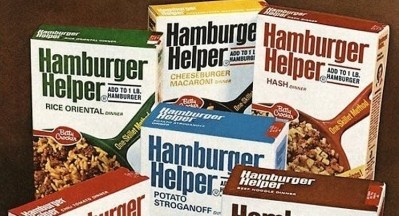General Mills revamps its innovation strategy to leverage tiger teams to find, quickly seize opportunities

“Innovation is critically important. It’s something that I’ve been passionate about and our company has been passionate about,” and which has served the company well during the pandemic, Jon Nudi, General Mills group president, North American retail, told investors last week at RBC Capital Markets Global Consumer & Retail Conference.
“During the pandemic, we never pulled back in innovation, and we think we’ve really benefited as a result. In fact, in cereal last year, we had over 50% of all the new product volume in the category just by keeping a healthy line-up of innovation,” he said.
Looking forward, he predicts innovation will continue to buoy the business even as it navigates unpredictable supply chains and rising inflation that has already triggered five rounds of price increases with more likely to come.
General Mills’ dedication to innovation complements its recent adoption of an ‘always on’ approach to mergers & acquisitions and its ongoing assessment of existing brands and products.
In addition to “core innovation,” like that seen in General Mills’ cereal business in recent years, Nudi said the company increasingly is focused on “disruptive innovation – so things that can create other new businesses or new categories and really incremental growth for us.”
GWorks: 'We give them a budget and we say go out and figure it out'
To effectively identify and leverage these opportunities, last year General Mills created within its GWorks unit a new disruptive growth team approach that brings together three people – a technical expert, a consumer insight specialist and a business person – who work together full time to deeply define and solve a consumer problem.
“We give them a budget and we say go out and figure it out, talk to consumers, use Facebook to create products that we can sell online and get learnings from and really develop a thesis for if there is a business here for us or for someone else, and if so, go ahead and build it,” he said.
So far, Nudi said, “we have 10 of these teams now focused on 10 different consumer problems and we are really excited about what this can do for us over time.”
While he didn’t divulge what problems the teams are currently tackling, he pointed to as an example the recent launch of Good Measure – a line of snack bars and food products that can help consumers with diabetes better regulate their glucose levels so they don’t have to lean on pharmaceuticals.
Another change to General Mills’ approach to innovation is the creation of a “pantry of ingredients” that its 1,000 food scientists, most of whom are in Minneapolis, can use to create new products from existing ingredients, potentially by adding complexity.
Even as the company looks for ways to make the most of what it has in the face of supply challenges, it still believes in giving innovators free rein to do what it takes to create something unique, Nudi added.
Bars are back and snacks are the future
Snacking – and in particular bars – is one area where General Mills sees significant potential for innovation, Nudi said.
He explained that while bar sales fell off early in the pandemic when many people were staying at home, the business is rebounding with Nielsen data showing growth in the mid-teens during the most recent fiscal year, “which is fantastic.”
Based on this, Nudi said, “we think there’s a lot more to be done from an innovation standpoint and building on our existing brands, like Nature Valley and Fiber One.”
Other snack categories that Nudi said he believes show significant promise for innovation and growth are fruit snacks, which he says everyone knows isn’t fruit, but rather a better-for-you candy. The company recently launched a new better-for-you product in this category.
“That category has just been on fire,” he said.
Citing Chex Mix and Bugles, Nudi also noted General Mills’ strong heritage in the snack aisle and the promise it offers going forward.
He explained: “We’ve got a unique role to play with really good brands in the space. So, we’ll continue to innovate. We’ll continue to see if there’s new space that we can go in snacking as well because we think that occasion is going to be on trend for the foreseeable future.”
Beyond snacking, Nudi said he sees potential for innovation in the breakfast segment – particularly around breakfast sandwiches that can be enjoyed at home more conveniently and for less than at a restaurant. This is a strategic play that takes on competition from quick service restaurants, he added.

















